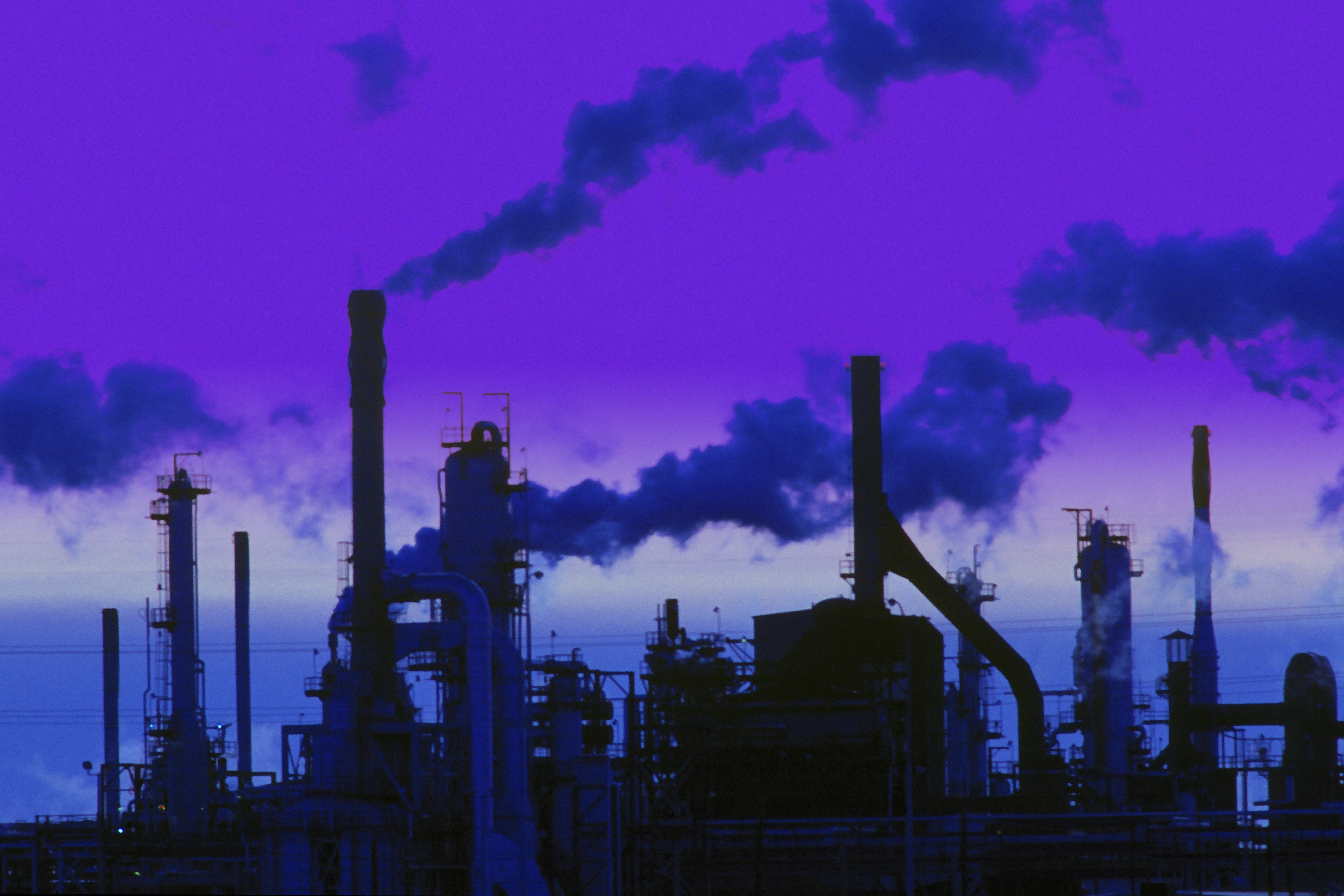America's oil export ban, explained
President Obama just ended the 40-year-old ban. What does that mean for the climate fight?


Our nation and world face a major problem of how to deal with carbon emissions, climate change, and the consumption of fossil fuels. And broadly, there are basically two ways to tackle the problem: Reduce demand for carbon-creating products, or reduce the supply of these products.
Cap-and-trade systems and carbon taxes squeeze demand by raising the cost of consumption, making it more likely that people will turn elsewhere for energy consumption. Another strategy is to squeeze supply: Prevent fossil fuels from being produced to begin with. This also raises their cost and drives people to other options, but by preventing demand from being satisfied rather than curtailing demand itself.
The battle against the Keystone XL pipeline was a prime example of the supply-side strategy. Another example is the fight over whether to lift America's 40-year-old ban on oil exports. The possibility that the ban would be lifted — thus increasing global supply of fossil fuels — has been floating around for some time, and climate activist groups have been trying to build opposition to this proposal.
The Week
Escape your echo chamber. Get the facts behind the news, plus analysis from multiple perspectives.

Sign up for The Week's Free Newsletters
From our morning news briefing to a weekly Good News Newsletter, get the best of The Week delivered directly to your inbox.
From our morning news briefing to a weekly Good News Newsletter, get the best of The Week delivered directly to your inbox.
And then Congress finally and suddenly killed the ban with one of the many, many, many things tucked away in the sprawling $1.1 trillion spending bill just signed into law by President Obama. This is a big defeat for the climate movement.
Congress passed the ban in 1975, in reaction to spiking global oil prices driven by the Organization of the Petroleum Exporting Countries (OPEC). Preventing domestic producers from getting their crude out of the country was meant to prop up domestic supply and keep domestic prices down. And because America imported much more oil than it could have exported, domestic producers didn't feel they were missing out.
That all changed with the domestic shale fracking boom. Companies that bring crude oil to the surface began clambering for access to wider markets. In particular, a lot of the refineries in the U.S. weren't set up to handle the type of crude from the shale boom. Since the ban very semantically held for crude oil, but not refined oil products, the lack of refineries created a de facto bottleneck, preventing the supply of oil from reaching a wider market. Climate groups actually liked this — hence their opposition to lifting the ban.
This gets us to a final complication: the vagaries of the global oil market. OPEC in particular is a wildcard, since it's a collection of sovereign countries with state-run oil companies, and makes decisions based on geopolitical concerns as much as market ones. OPEC didn't cut back on production in the face of the North American boom, so global prices have crashed, which will make it hard for U.S. producers to make much of a profit with international exports. One of the ironies here is that the ban was lifted just as 2015's oil price plunge eliminated much of the economic incentive for exports.
A free daily email with the biggest news stories of the day – and the best features from TheWeek.com
Still, oil prices could and probably will eventually go back up. Or if OPEC decides it does want higher prices, its cutbacks to production could balance out any additional supply U.S. exporters add to the global pot.
It's really hard to estimate how much the end of the ban will affect global carbon emissions. The worst case scenario is that it would add 1 percent or more to annual emissions. That may not seem like much, but every little bit counts. And the deal Democrats struck was lifting the ban in exchange for extending a bunch of green energy tax credits, the climate benefits of which would be more than swamped by a 1 percent increase. Other middle-of-the-road estimates suggest the whole thing could be something of a wash.
It's all very complex and hard to estimate. This is why a lot of centrist critics frown on supply-side strategies like opposition to the Keystone pipeline, and favor going after demand through things like regulations, cap-and-trade systems, carbon taxes, and the global agreements that can help all those things along.
Demand is more foundational precisely because human wants are the engine that drive the whole global economy in the first place. So squeezing demand allows you to get your arms around the whole system in a way you usually can't with supply-side action.
But that comprehensiveness also comes with bigger political challenges. There's a reason cap and trade failed in the U.S. in 2009, and that a similar system in Europe is so riddled with problems and carve-outs that it's nearly useless.
There's still an argument to be made in favor of supply-side tactics: Even if they can sometimes be more symbolic than concrete in their effect on emissions, they build movements, commitments, and organizations across vast numbers of people that can then take on the bigger challenges.
Fighting climate change ultimately boils down to preventing some very rich and powerful entities from exploiting the massive amounts of wealth represented by untapped fossil fuel deposits. They're going to fight like hell against any effort to force those deposits to stay in the ground. The more comprehensive the effort is, the more they'll fight. Which makes strategy a key, if very tough, question.
Jeff Spross was the economics and business correspondent at TheWeek.com. He was previously a reporter at ThinkProgress.
-
 Political cartoons for January 24
Political cartoons for January 24Cartoons Saturday's political cartoons include 3D chess, political distractions, and more
-
 Ryanair/SpaceX: could Musk really buy the airline?
Ryanair/SpaceX: could Musk really buy the airline?Talking Point Irish budget carrier has become embroiled in unlikely feud with the world’s wealthiest man
-
 Claudette Colvin: teenage activist who paved the way for Rosa Parks
Claudette Colvin: teenage activist who paved the way for Rosa ParksIn The Spotlight Inspired by the example of 19th century abolitionists, 15-year-old Colvin refused to give up her seat on an Alabama bus
-
 The pros and cons of noncompete agreements
The pros and cons of noncompete agreementsThe Explainer The FTC wants to ban companies from binding their employees with noncompete agreements. Who would this benefit, and who would it hurt?
-
 What experts are saying about the economy's surprise contraction
What experts are saying about the economy's surprise contractionThe Explainer The sharpest opinions on the debate from around the web
-
 Late night hosts joke about Trump's forced exodus from Facebook to blog
Late night hosts joke about Trump's forced exodus from Facebook to blogSpeed Read
-
 Fox News admits Biden doesn't actually want to cancel meat. Late night hosts pounce anyway.
Fox News admits Biden doesn't actually want to cancel meat. Late night hosts pounce anyway.Speed Read
-
 The death of cities was greatly exaggerated
The death of cities was greatly exaggeratedThe Explainer Why the pandemic predictions about urban flight were wrong
-
 Manhattan D.A. will stop prosecuting sex workers, not their clients, pimps, or sex traffickers
Manhattan D.A. will stop prosecuting sex workers, not their clients, pimps, or sex traffickersSpeed Read
-
 John Oliver explains personal bankruptcy, how credit card lobbyists and lawyers make it much worse
John Oliver explains personal bankruptcy, how credit card lobbyists and lawyers make it much worseSpeed Read
-
 John Oliver explores problems with U.S. nursing homes and long-term care, suggests you pay attention
John Oliver explores problems with U.S. nursing homes and long-term care, suggests you pay attentionSpeed Read
